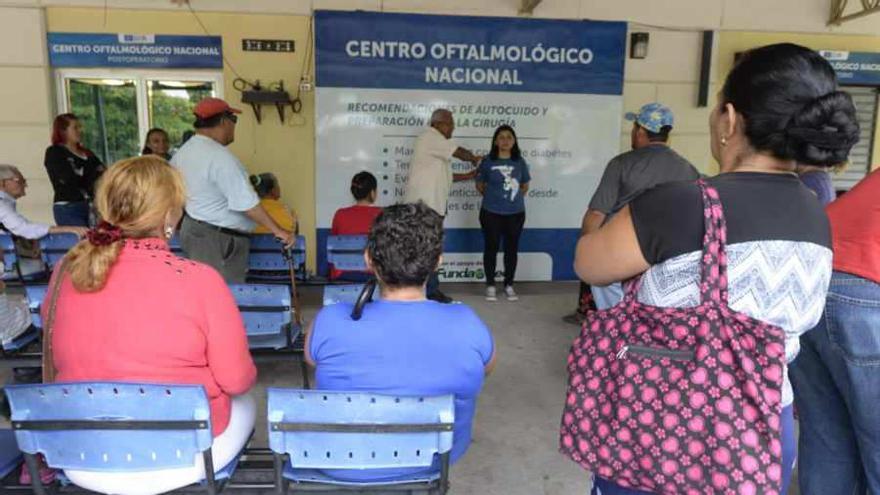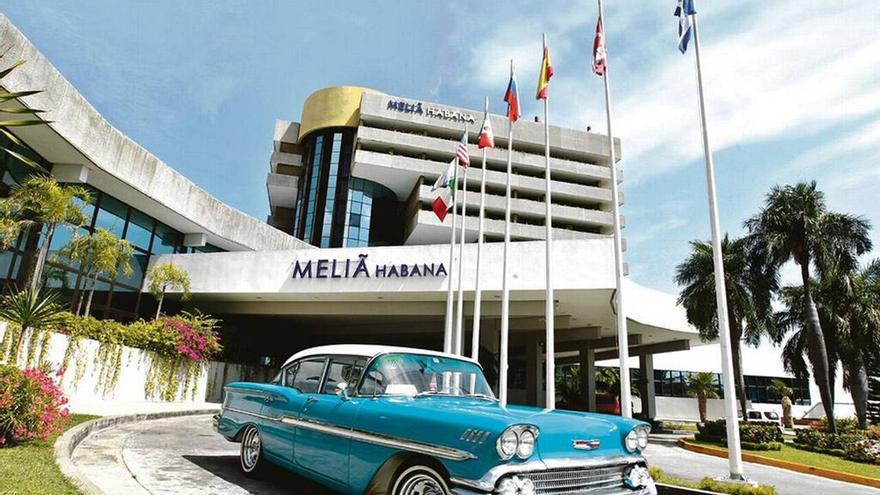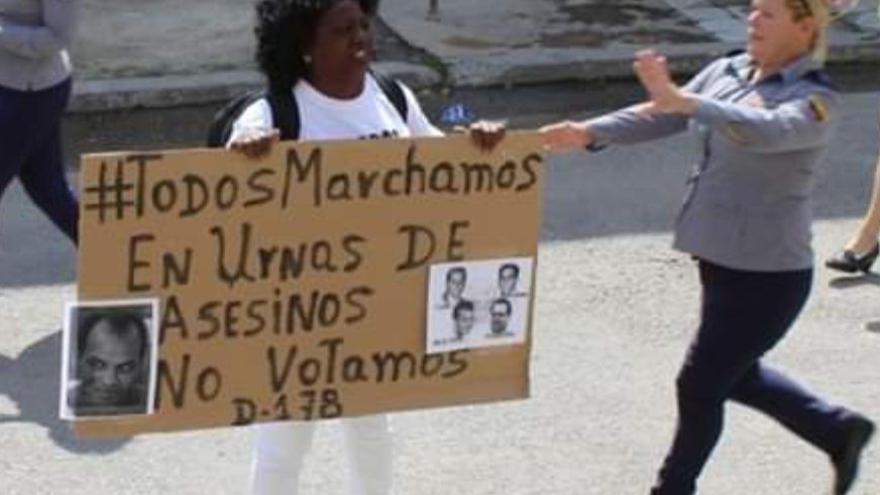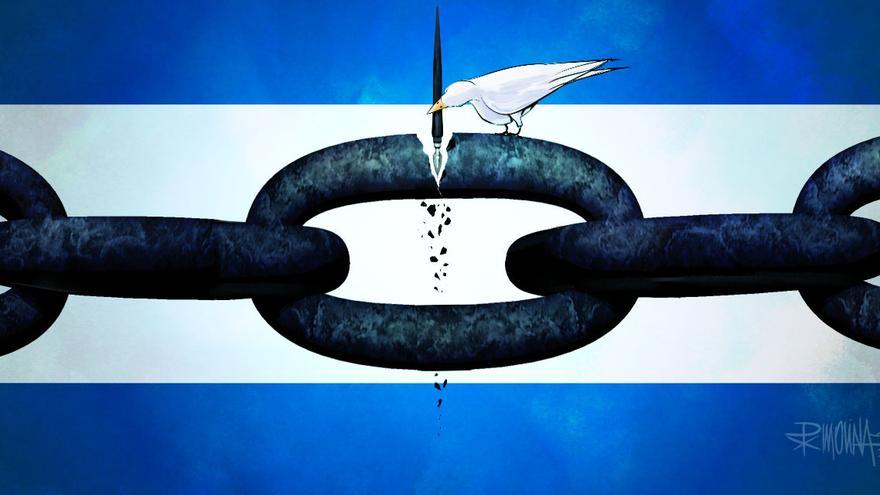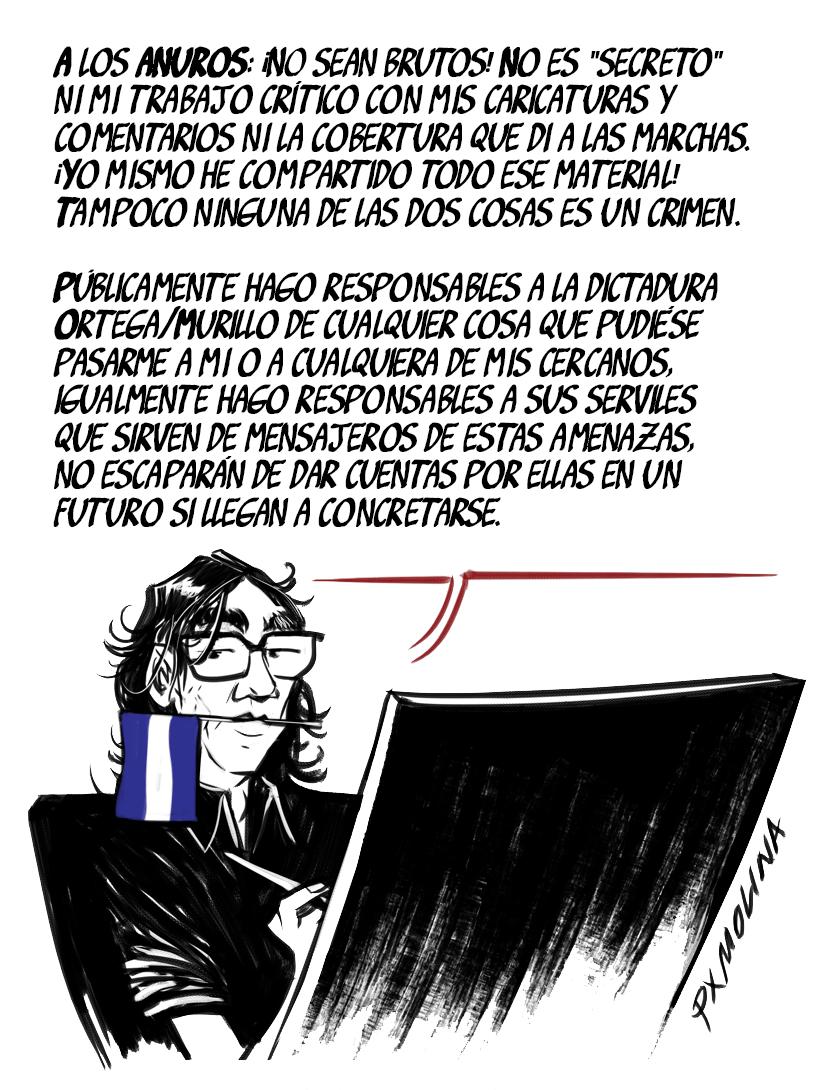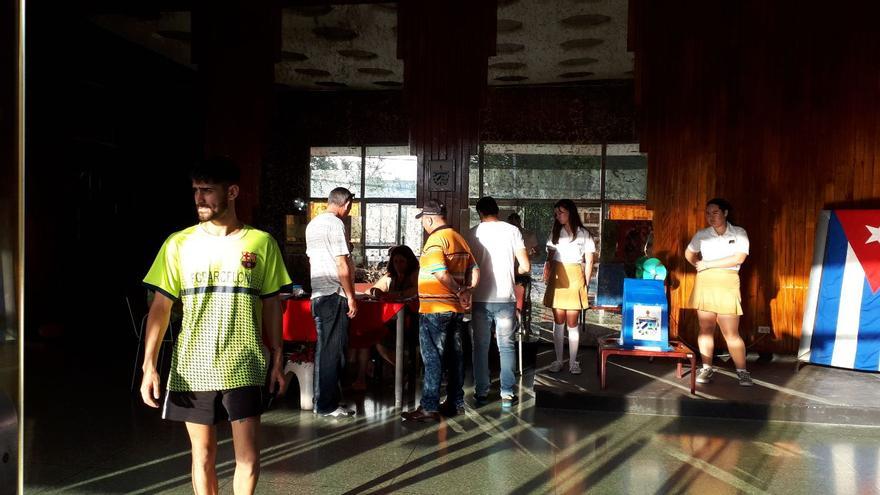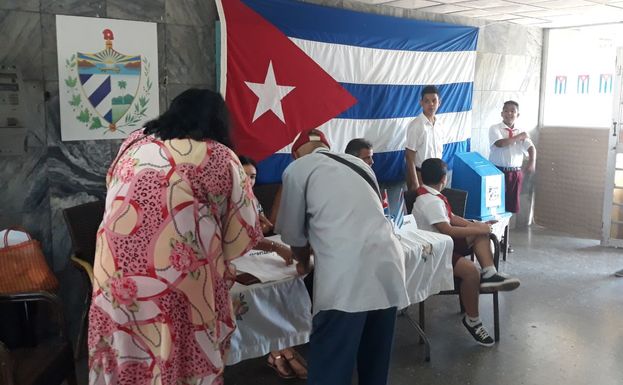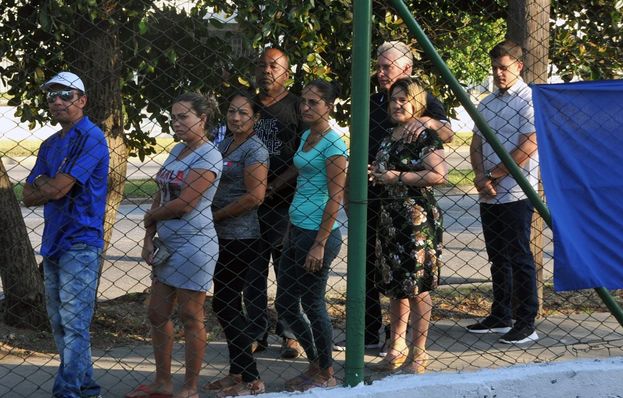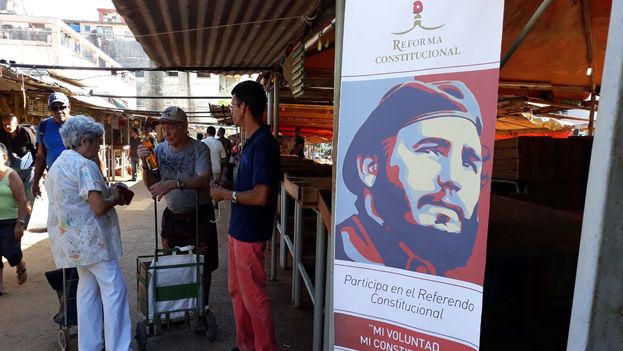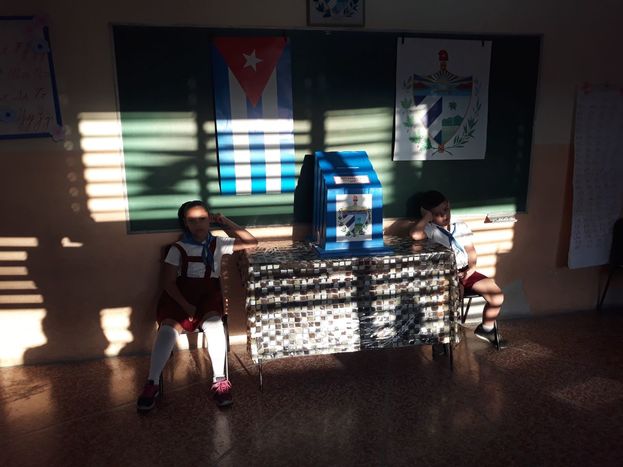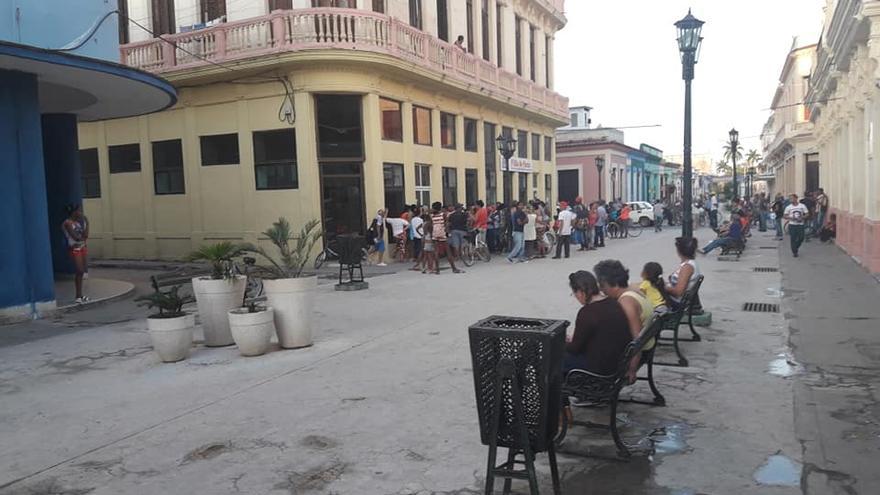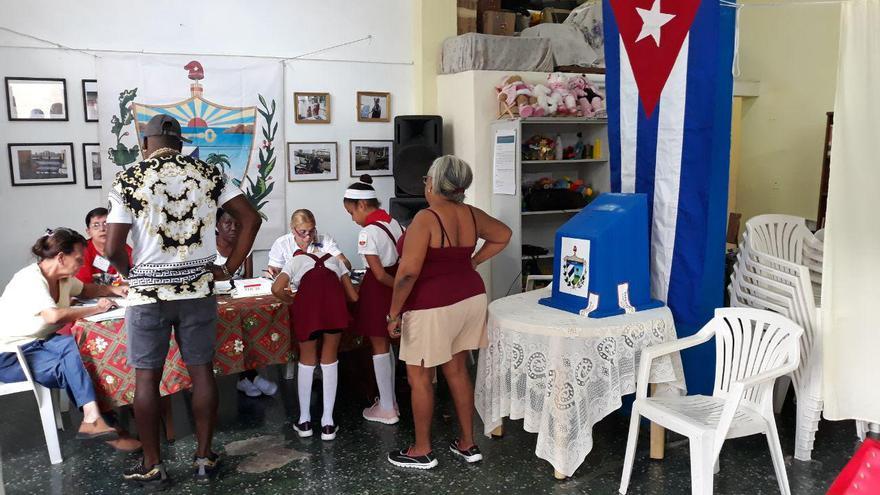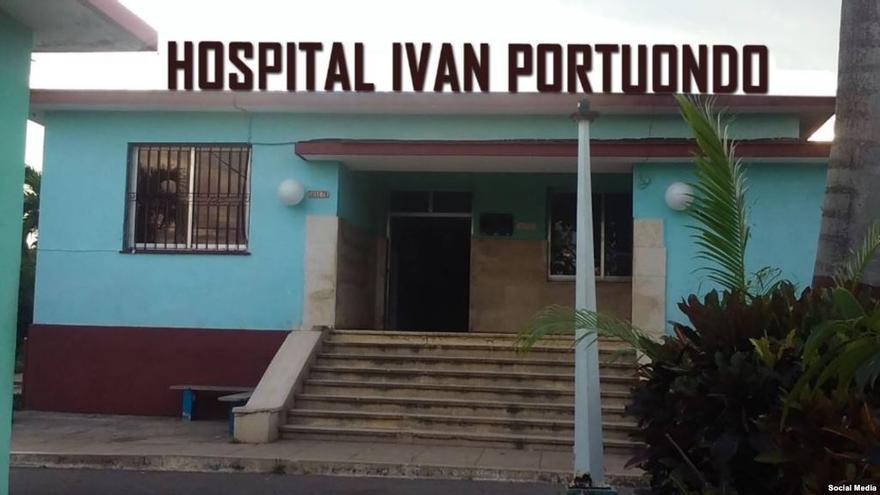
![]() 14ymedio, Havana, April 26, 2019 — The information that had been circulating for several days on social media was true: they had found, last Saturday, a body in a cistern of the Iván Portuondo hospital in San Antonio de los Baños (Artemisa). The official press has confirmed it this Thursday in an article published on the Facebook page of the local newspaper El Artemiseño, which speaks of an “unpleasant incident” and calls for “ill-intentioned rumors” to be avoided.
14ymedio, Havana, April 26, 2019 — The information that had been circulating for several days on social media was true: they had found, last Saturday, a body in a cistern of the Iván Portuondo hospital in San Antonio de los Baños (Artemisa). The official press has confirmed it this Thursday in an article published on the Facebook page of the local newspaper El Artemiseño, which speaks of an “unpleasant incident” and calls for “ill-intentioned rumors” to be avoided.
“According to the doctor Alden Peláez, provincial director of Public Health, upon finishing work in the cisterns, which has a quandrant system that makes them difficult to inspect, a body was detected, on April 20, inside one of these,” explained El Artemiseño, which clarified that the deceased “is not a patient of the hospital.”
“In San Antonio they aren’t talking about anything else,” Rosenda Calvo, a resident of the area near the hospital, tells 14ymedio via telephone. “It was the patients themselves and their families who put so much pressure on them with their complaints of the poor state of the water that they ended up making workers inspect what was happening.” continue reading
“The water coming out of the sinks didn’t only have a bad odor, but it was also murky and, for several days, the patients’ visitors had had to bring the sick people even water to bathe,” confirms Calvo, who had a family member hospitalized. “They thought that maybe it was a matter of a turkey vulture or a dog, but never a person.”
This newspaper attempted to communicate on several occasions with the hospital, the local Police office, and local media to confirm the information, but only received evasive answers and on several occasions the people who answered hung up.
However, the publication this Thursday of the news in El Artemiseño is an unusual gesture in the official press, little given to reporting incidents that occur inside hospitals, schools, or prisons.
The Ministry of the Interior is in charge of the investigation and, according to the publication, took measures like the “halting” of the water supply in the hospital and the use of barrels and tanks of certified water for the hospital to continue functioning.
“Other measures taken were the monitoring of residual chlorine three times a day in different parts of the network and microbiological surveillance of the water on equal numbers of consecutive days,” added Peláez.
According to the director, the contaminated cistern and the tanks that it supplies will not be in service until “the pressure washer and the hydrology team carry out the cleaning, disinfection, and certification.”
According to Martinoticias, which interviewed a resident, the deceased was named Villo Mantilla and was a former employee of the hospital. According to her, the body had been in the water tank for at least 15 days.
“I don’t know how he fell in the water, which is potable water for the consumption of the patients, the sick, the doctors,” said Rolando Yuset Pérez Morera, another resident of San Antonio de los Baños.
“Inside the cistern they found trash, a wheelchair, a great amount of filth,” added Pérez Morera.
The official press added in its statement that it will provide a “follow-up” to this “lamentable incident” in order to not give space to comments “that undermine the sensitive Cuban health system.”
Translated by: Sheilagh Herrera
_________________________________
The 14ymedio team is committed to serious journalism that reflects the reality of deep Cuba. Thank you for joining us on this long road. We invite you to continue supporting us, but this time by becoming a member of 14ymedio. Together we can continue to transform journalism in Cuba.

